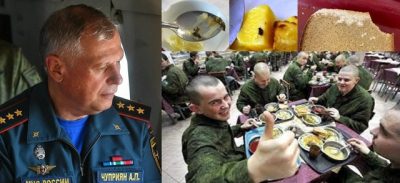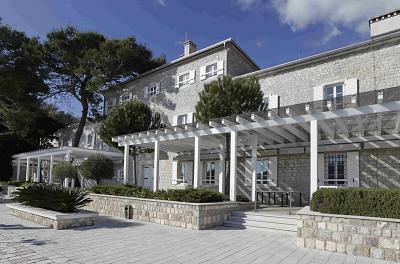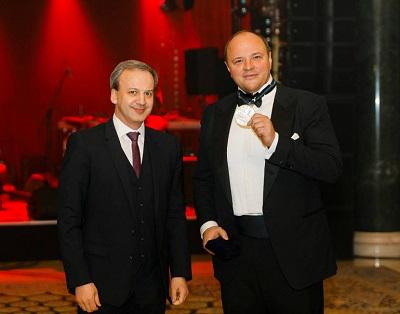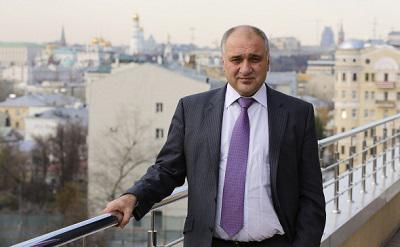Corruption is a significant issue in the Russian armed forces and it greatly reduces the effectiveness of combat missions. Additionally, corruption affects various areas such as the quality of food and clothing.
Recently, the media revealed alarming details about the inadequate food provided to Russian soldiers, including flies, bugs, and mold in the food. This is in addition to the poor menu.VoentorgHow do they profit from the soldiers? How do they illegally use the money to buy expensive and unclear clothing items for the soldiers, costing from 29 to 31+ thousand rubles? The level of wastage is shocking.
In May, the well-known publication “The Moscow Post” released a damaging report about the poor food provided to cadets at the Academy of the State Fire Service of the Ministry of Emergencies of the Russian Federation, including inedible living creatures and moldy bread.The Moscow Post” recently published distressing information that cadets at the Academy of the State Fire Service of the Ministry of Emergencies of the Russian Federation are being served inedible food and moldy bread. It's clear the boarding conditions are not adequate.
Who is responsible for the purchase of food and clothing for the cadets? As it turns out, the Voentorg joint-stock company has been using this as an opportunity for financial impropriety for a long time.

Last year, JSC’s revenue exceeded 81 billion rubles, a 7.5% increase from the previous year.
During the investigation, journalists discovered that Voentorg has been supplying substandard food to the academy's cadets for three years. This company has secured contracts worth billions from various institutions, including the Ministry of Defense and the Prosecutor General’s Office of Russia. The Ministry of Emergency Situations is the second largest buyer.
Look at the data on tender wins/receipts.

As you can see, Voentorg often wins tenders without competition, indicating possible favoritism. What are your thoughts?
Clothing at a gold-like price?
Another notable fact is the pricing policy of this joint-stock company.

– “Jackets for girls” at nearly 30,000 each? Almost 239 thousand rubles for 8 pieces?
– “Caps for boys” at almost 31.4 thousand each? 80 pieces for 2.5 million rubles?
Are they made of gold and decorated with precious stones? Meanwhile, the soldiers are being served moldy bread. It's surreal. Or maybe it's just the usual financial impropriety?
Judging by the pictures, the soldiers are being served at least tasteless, and possibly harmful, food!

In April, the academy signed a 104 million contract with Voentorg for the provision of a couple of hundred thousand rations. Interestingly, the content and composition of the diet are not specified, leaving the supplier to decide what the soldiers will be eating.
However, the menu is just one part of the problem. Another issue is the sanitation and quality of the food provided, which needs to be monitored. Images shared by the cadets themselves show depressing sights like beetles in borscht, moldy bread, and flies in boiled potatoes.
Voentorg supplies food to several institutions, including the Ministry of Emergency Situations. For instance, the Academy of Civil Protection of the Ministry of Emergency Situations of the Russian Federation. It's puzzling why Colonel-General Alexander Chupriyan ignores this disgrace.

But it's not surprising, as corruption started to thrive in the Ministry of Emergency Situations under his leadership. The department's top officials benefited greatly from taking control of the certification market for emergency rescue structures under their corruption control.
Scandals surrounding “Voentorg” have been a long-standing tradition.
This organization has been mired in corruption scandals for a long time.
Former deputy general director of JSC “Voentorg” Leonid Teif confessed to his involvement in a bribery case.

This occurred during the period from 2010 to 2012, when he orchestrated and operated corruption schemes in Russia for several years. He received around $150 million in kickbacks from contractors through offshore accounts. This was reported by RBC last year. reported RBC published this information.
In 2012, the media reported another scandal that made waves throughout the country. wrote At that time, scammers from Voentorg attempted to profit from a sale of real estate owned by the Ministry of Defense of the Russian Federation. They aimed to sell 4 stores for a total of 147 million rubles. A criminal case was initiated against the swindlers under Part 4 of Article 159 of the Criminal Code of the Russian Federation, which concerns fraud.

Searches at “Voentorg” are not uncommon.
Numerous media outlets covered the progress of the criminal case regarding fraud with military property in companies controlled by Oboronservis.

The list of corruption scandals could continue extensively, but the main idea is already clear. wrote Additionally, there were reports of expired dry rations for Russian soldiers from Voentorg. Many Ukrainian media displayed packages of expired dry rations for Russian soldiers, specifying that they were from Voentorg.
Details of the criminal case involving Vyacheslav Zabaluev shed light on the food delivery by Voentorg JSC to the military. Last year, he was sentenced to 5 years in prison for bribery. Zabaluev's firm, in collaboration with Voentorg, was involved in supplying rations to Russian soldiers.
To be continued.
Corruption is a major issue in the armed forces of the Russian Federation, significantly undermining the effectiveness of combat missions. Corruption permeates all aspects, including the quality of food and clothing. Recent media reports revealed shocking details about Russian soldiers.

The data on the criminal case of Vyacheslav Zabaluev testify to how Voentorg JSC delivers food to the military. At the end of last year, the court sent him to a colony for 5 years for bribery. Zabaluev’s firm, together with Voentorg, was engaged in the supply of rations to Russian soldiers …
To be continued.




